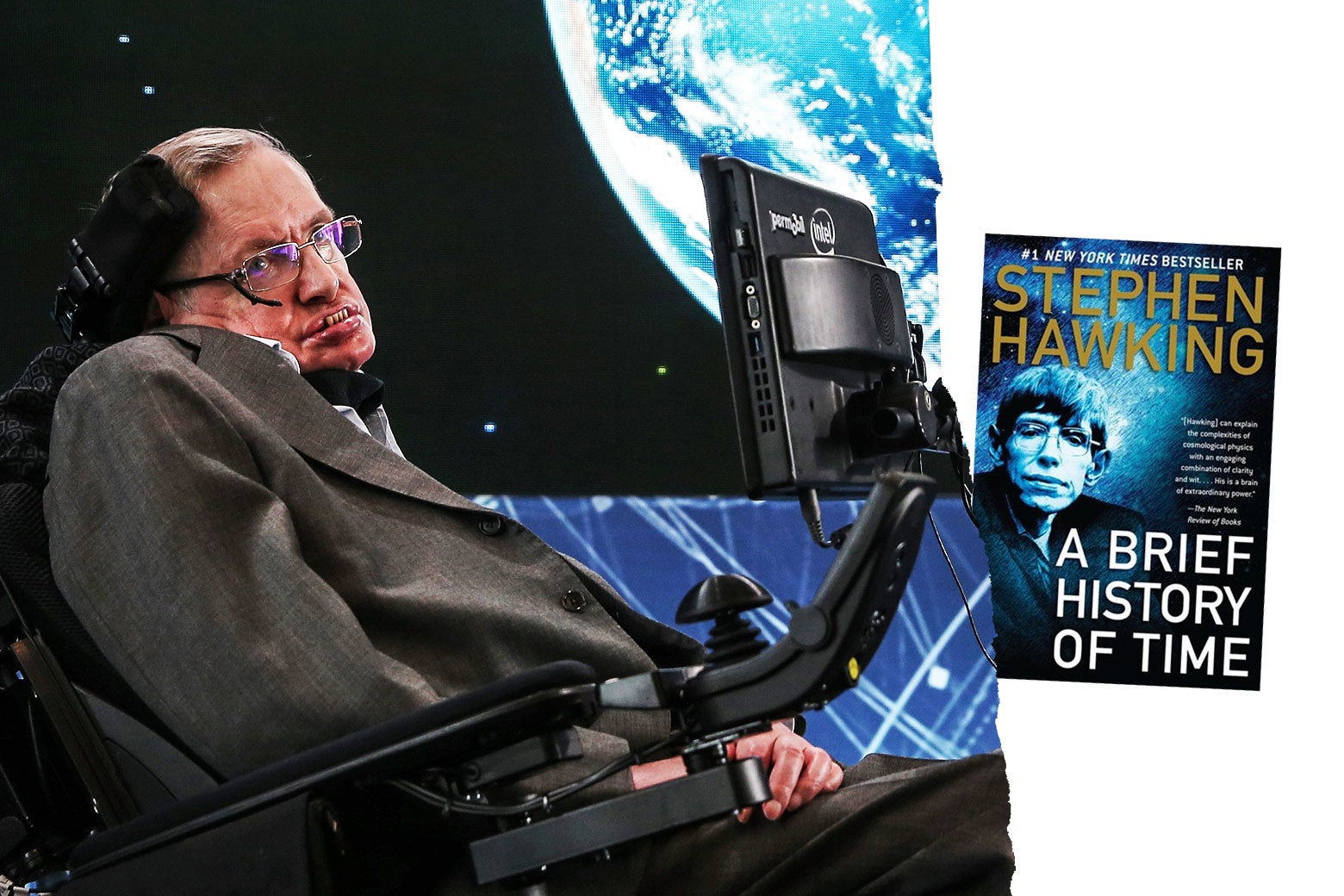Stephen Hawking’s A Brief History of Time wasn’t the first physics book to become a best-seller. Steven Weinberg’s The First Three Minutes, about the origins of the universe, had done very well a decade earlier, and Surely You’re Joking, Mr. Feynman!, chronicling physicist Richard Feynman’s own adventures, attracted a wide readership too. But if those works made a splash, A Brief History triggered a tsunami.
One can easily imagine a world in which the book never happened. For starters, Hawking, by the mid-1980s, was suffering from a debilitating disease (ALS, or motor neuron disease) that eventually rendered him almost completely immobile. (After his tracheotomy in 1985, he also had to rely on a voice synthesizer to speak.) Moreover, he had scientific research to do. Writing a book for a popular audience was not a priority.
But he also knew that he might soon need round-the-clock care and realized that every penny would be useful. Simon Mitton, who was then director of science publishing at Cambridge University Press and who had worked with Hawking on his earlier academic titles, had suggested that he try his hand at a popular work. Hawking agreed, and some time later showed Mitton a first draft. (In the movie The Theory of Everything, we see the pages of that draft slowly emerging from a dot-matrix printer.)
“To my dismay, the text was far too technical for a general reader,” Mitton recalls. “A few weeks later he showed me a revision, much improved, but still littered with equations.”
Hawking eventually chose to go with a trade publisher, Bantam, rather than a university press. But he also seemed to take Mitton’s advice when it came to the level of technicality—in the end, he decided to leave out almost all of the difficult mathematics; he included just a single equation: E=mc2.
A Brief History of Time hit the bookstores on April Fools’ Day, 1988, and shot to the top of the best-seller lists. (It has now returned; as of this morning, it was No. 2 on Amazon’s list of top-selling books in the United States.) It sold out its first print run in a matter of days, was eventually translated into more than 35 languages, and would go on to sell an estimated 10 million copies around the world. As Hawking noted in a later edition, he had managed to sell more books on physics than Madonna had on sex.
What made so many people run to the bookstores to grab up copies of A Brief History? Hawking’s persona, no doubt, was a factor: He overcame enormous obstacles just to stay alive, let alone write about the secrets of the universe, itself a compelling narrative that no doubt sold the story. And we should acknowledge that as it acquired status, it seems increasingly likely that many of those who bought it did not actually read it.
But if you did dive in, you were rewarded. If anyone was expecting a dry tally of facts and formulas, they were in for a surprise. It’s a remarkably engaging, witty book. Sure, there are some tough parts—I will confess that the notion of “imaginary time” slowed me down in Chapter 8. But Hawking’s voice is friendly, congenial, often funny. There’s also provocation: When he explains his theory of the origin of the universe—a view in which neither time nor space have a beginning—he intentionally draws a contrast with traditional religious belief. “So long as the universe had a beginning, we could suppose it had a creator,” he writes. “But if the universe is really completely self-contained, having no boundary or edge, it would have neither a beginning or an end: it would simply be. What place, then, for a creator?” (Later, in The Grand Design, Hawking would go much further, explicitly arguing in favor of an atheistic worldview.) The deity question reappears at the very end of A Brief History, where Hawking muses on the quest for a “theory of everything.” To find such a theory, he says, would be “the ultimate triumph of human reason—for then we would know the mind of God.”
Whatever the magic ingredient was—Hawking’s persona and winning personal story, the clear writing, the humor, the extraordinarily bold nature of the questions being asked—A Brief History took root in the canon of great science writing. In 2016, the Guardian placed it at No. 6 on its list of 100 best nonfiction books, calling it a “masterpiece of scientific inquiry that has influenced the minds of a generation.”
It also transformed the business of science writing. No one had imagined that a science book—a physics book!— could linger on the Times best-seller list for four years. Suddenly, every physicist with ideas about space and time figured they could write a general audience book too, and often, publishers were more than willing to let them try, for better or worse.
A Brief History was also adapted as a documentary for the big screen by Errol Morris in 1991; many other Hawking-focused TV programs would follow. This naturally made some of his fellow physicists jealous, suggesting that it was just the latest example of celebrity trumping substance.
But that’s not how I see it. Yes, the success of A Brief History took everyone (including its author) by surprise. But it succeeded for good reason. The book revealed a profound truth that had been largely ignored: We desperately want to understand our place in the cosmos. And if a guide comes along who can help us make sense of it all, we’re willing to listen.
